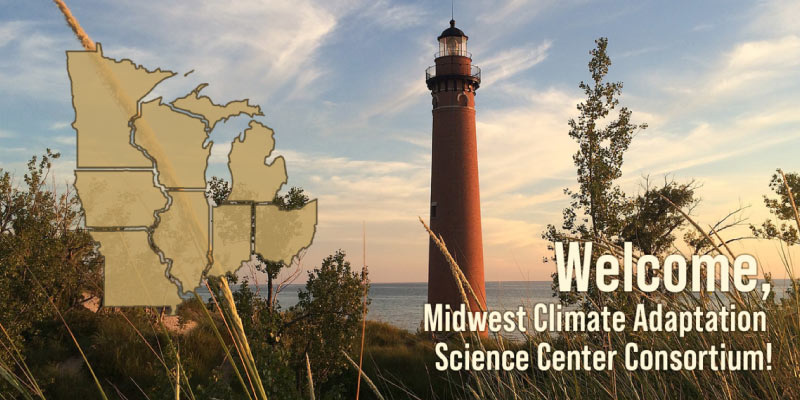
The Department of the Interior today announced the location of the newest Climate Adaptation Science Center (CASC), the ninth and final CASC in the national network dedicated to providing science to help managers of the country’s fish and wildlife resources adapt to climate change.
The U.S. Geological Survey has finalized an agreement with a consortium of eight universities and natural resource organizations to form the Midwest CASC, which will include a partnership with University of Wisconsin-Madison experts Dan Vimont, the director of the Nelson Institute Center for Climatic Research, co-director of the Wisconsin Initiative on Climate Change Impacts, and a professor in the Department of Atmospheric and Oceanic Sciences; Jake Vander Zanden, a professor and the director of the Center for Limnology; and Benjamin Zuckerberg, an associate professor in the Department of Forest and Wildlife Ecology.
“I’m excited to be part of such a great team from Wisconsin and around the Midwest region,” Vimont said. “This work means a lot to us because of how special our natural environment is here in Wisconsin and the Midwest. The work we’ll be doing will help us manage our lakes, wildlife, and natural resources in the face of changes that we’re already seeing. It’s the Wisconsin Idea in action.”
The Midwest CASC consortium will be hosted at the University of Minnesota’s Institute on the Environment and will include the University of Wisconsin, the College of the Menominee Nation, the Great Lakes Indian Fish and Wildlife Commission, Michigan State University, Indiana University, the University of Illinois and the Nature Conservancy. Member organizations were selected after an open competition and extensive review by scientific experts.
“In order to address the climate crisis, we need to be guided by the best available science. Integrated collaboration with educational and natural resource organization partners ensures that federal, Tribal and state resource managers have access to the collective wisdom of world renowned experts. The Midwest Climate Adaptation Science Center will better position us to mitigate climate impacts while focusing needed attention to Tribal and state resources that are particularly vulnerable to climate change,” said Secretary of the Interior Deb Haaland.
“We are excited to bring climate-focused innovation and scholarship to America’s heartland, where the next generation of students stands ready to tackle the challenges facing the Great Lakes, mighty rivers, fertile prairies and abundant natural resources of the region,” said Doug Beard, USGS National Chief of Climate Adaptation Science Centers.
The Midwest CASC will support management and protection of land, water and natural resources with actionable climate science, innovation and decision support tools. It will pay special attention to Tribal concerns and build off the unique and robust experience of Midwest Tribes with adaptation science and practice. This includes a fellowship program for graduate students and a summer research experience for undergraduates focused on Tribal participation. Another focus will be the interplay of natural resources, forestry, streams and wetlands, with agricultural and urban areas, land uses that are prominent in the Midwest.
The partnership will be effective immediately, with a formal ribbon cutting celebration planned on the University of Minnesota-Twin Cities campus later this fall.